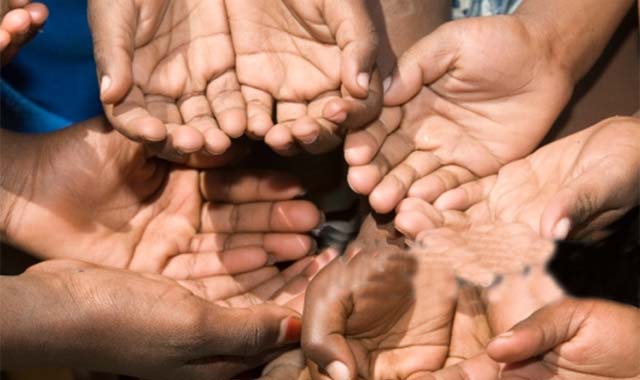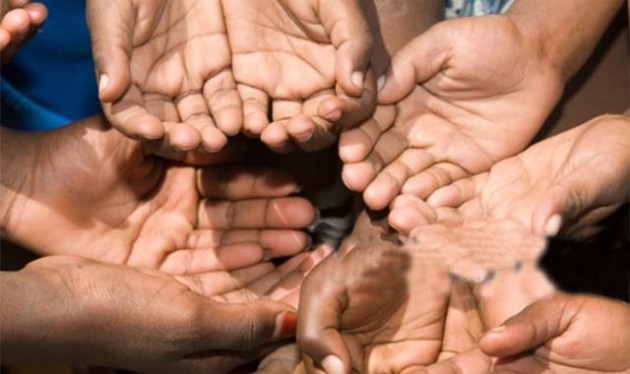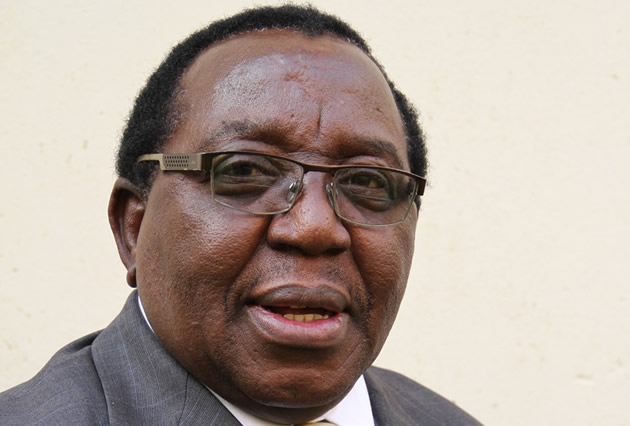Living free from donor dependency


Many people in Africa appear to have been spoilt by donors to who they always extend the begging bowl. It’s time we focus on what we can do alone without begging
Dr Sekai Nzenza On Wednesday
“Ini handisi donor, mazvinzwa?” declared my cousin Reuben, standing in the middle of the homestead. By this, he meant, I am not a donor. This sudden outburst had been prompted by the number of people, some of them our close relatives, who were asking Reuben for money. Their needs for cash were many.
From the moment we arrived on Friday evening, till Sunday morning, people came to ask for money from Reuben: Give us money for maize. We are hungry. This year the maize got burnt by the sun. Give us money for school fees. Give me money for medicine, my daughter got burnt with hot water and the medicine can only be found in Hwedza. My cousin is seriously ill in Mutoko, give me money for the kombi, so I can go and see him before he dies. Give me money. Give me money. If I do not ask you for money, who else can I ask?
Another old sekuru, a distant relative whose name I had forgotten, stopped by and said, “Ah, Reuben, murungu wangu. Ndipe mari yedoro.” (Reuben, my boss, give me money for a beer). I could see Reuben’s face looking very irritable.
“Why do you call me white man? Haa?” Reuben was taking the conversation literally, and perhaps getting a little too sensitive about everything. I explained to Reuben that people use the word white man or murungu only to indicate that you are the boss or you are the one with money.
“But I am tired of this colonial mentality that makes people think it’s only the white man who has money,” he said.
Outside it was very cold. We sat in my mother’s kitchen roasting the last green mealies of this season around the fire.
People walked in on their way to church or to the bar at the shops on the hill. We listened to everyone’s need for money. My cousin Piri and I knew that any request for money was not directed at me, but at Reuben. He was the newcomer from the Diaspora. Not me.
Reuben used to live in Australia but has since come back, hoping to do business in farming and mining. He is struggling, but he remains hopeful. “Shanda nezviripo,” meaning make do with what is there, is now Reuben’s motto. He is learning to live and survive in Zimbabwe very fast.
“Since when did you stop being a donor?” asked Piri, deliberately teasing Reuben. He replied that he has never been a donor to anyone and he did not intend to be one.
Reuben had forgotten that a couple of years ago, before he decided to come back home and live in Zimbabwe, he was a donor sponsoring a child in the Honde Valley. Piri reminded him of that fact.
She had told him that he should not be spending money on people who were not related to us.
“You can only help strangers when everyone in our family has eaten until they are full, not when we are still hungry. Why do you go and look for foreigners to feed and clothe?” Piri asked Reuben. I recall that she was standing in the middle of the village courtyard, tight jean skirt on, flat orange shoes, orange T-shirt and a bottle of beer in hand. At that time, Reuben was living in Australia and he was back here to build a nice big house in Borrowdale so he could come back one day and retire.
The weekend before, Reuben had gone to Honde Valley in the Eastern Highlands where he visited his sponsored child. Rueben often talked about this kid called Peter whose parents were both very poor and could not afford to pay Peter’s school fees. When he first told me about the kid, I was in Australia and I had seen Peter’s photo on the fridge in Reuben’s house. I remember asking Reuben why he decided to sponsor the child. Reuben said he wanted to stay connected to Africa. For that reason, he sponsored a needy child.
Reuben had then showed us the photos of Peter and his family on his Ipad. He said, “I tell you what, this kid is so bright. He will end up going to university and if that happens, I would pat myself on the back and say, “Reuben, you have done your duty to humanity and to your country.”
Piri then said to him, “Chakanaka idya nehama mutorwa ane hanganwa.” This was an old saying from the wisdom of the ancestors. It meant that when good fortune smiles on you and gives you plenty of food; eat it with your relatives only because strangers are likely to forget your generosity. It also means you should not help anyone who is not related to you because tomorrow, that person will not remember you. There was a heated argument, with Piri and Jemba telling Reuben to focus on his relatives first before giving money to strangers. I recall that Reuben shook his head and walked away to take more pictures of the stars and the half moon.
Two years later, we were back in the kitchen hut and here was Reuben saying he was not a donor although we knew that he was still sponsoring the child in Honde Valley. “Listen guys, I can still give a little bit of money here and there, but not when people see my car and they come over to beg for money. I am not a bank,” Reuben said.
Then Piri pointed at me and gave this little speech which took me totally by surprise. She said, “When people come back from the Diaspora, they look at us and see only hardship, poverty and hunger. If you ask for money, they give you, without any problems. If you ask for water, they rush back to the donors in America, Australia, and England or wherever rich white people live.
Within a few weeks, they tell you that they have money from a donor. In no time at all, we get a borehole here and a borehole there. When the borehole breaks down, you ask them to repair it. They complain a bit. But they still fix the borehole, because they say kids cannot drink dirty water. But give these people who have come back from the Diaspora one or two years in Zimbabwe, and you will see them begin to talk like us. They start saying, handisi donor, you must work. Inonzi Zimbabwe,” said Piri laughing and almost choking on roasted corn.
Piri was making jokes on my account. I am used to Piri’s jokes. But this little speech somehow hurt a bit because it brought back the experiences I had when I started the Simukai project, whose main objective was to provide water, nutrition gardens and an income generating grinding mill in this village.
When I first came back here, my mother was still alive. That was five years ago. I saw only poverty, hunger, disease and depression. After many years working for a global international development agency covering emergency relief operations from Rwanda to the tsunami in Asia, I thought I fully understood how to help those in need. I also knew how to tell the poverty story and raise money from donors. But, I did not realise that my approach, was also encouraging people to become so dependent on the donors.
When the donor funded bush pump broke down for the second time, people came to me asking for money to repair it. I said I had no money to repair it and I could not go back to the donors and ask for more. That was all true. Which donor would give us money to repair a bush pump?
It took five months before the Simukai Project women and other elders got together, formed a water committee and each one raised ten dollars for the repair of the pump.
This year, the Simukai community garden is full of tomatoes, kale and onions to feed many people. We are not expecting any donor support here. Instead, we plan to begin another Simukai project ten kilometres from our village.
“People in this village have been spoilt by donors. It’s time we focus on what we can do alone without begging,” said Reuben. “And, let us stop calling each other murungu. This language of dependency will continue to take us back to the colonial days.”
Dr Sekai Nzenza is a writer and cultural critic.









Comments